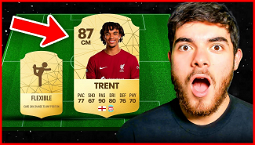A study reveals that 70% of players avoid certain games due to toxic communities
A study reveals that a majority of gamers are deterred from playing certain games due to their toxic communities, as one user shares their personal experience with the mental health toll of being subjected to toxicity in League of Legends. The study, which examines the overall relationship between gamers and toxicity, is accompanied by an outpouring of personal experiences from users sharing their encounters with problematic behavior in games like League of Legends and DOTA.
“I’d love to play League, but the toxicity of the community is too much to bear,” one user writes, highlighting the negative impact that toxic behavior can have both on the player and their mental health. Another mentions their desire to play League, but is deterred by the toxicity of its community.
“I started playing [FIFA] 12 and 13 and then FIFA 19 but I just couldn’t stand the toxicity of the community,” one user writes, while others share stories of encountering toxicity in games like Madden and Call of Duty.
A discussion then arises regarding the reasons behind the toxicity in certain games, with several users expressing their belief that the existing player base and the game’s design contribute to toxic environments.
“The toxic communities of games like Fortnite and Apex Legends are simply a product of the fact that the games are simply so popular among younger players and have a massive player base,” one user writes. “If there were only ten players on each server, then they would be very polite and respectful.”
Others point out specific examples of games that require teamwork but do not have toxic communities, such as Monster Hunter World, Horizon Zero Dawn, and Warframe.
“It’s not the games themselves, it’s the culture around them and how the people who play them are raised,” another user writes. “Try-hard mentality of most gamers contributes to toxic behavior.”
Another user shares their story of having quit World of Warcraft due to its toxic community, finding solace in playing Diablo with friends.
“The toxic behavior of grown men is a lot worse than the toxic behavior of teenagers,” one user writes. “At least with teenagers it’s still edgy behavior, but with grown men it’s just toxic behavior.”
A debate then arises regarding whether the games themselves are to blame for toxicity or if it’s a matter of personal behavior.
“Toxicity is just an internet thing,” one user writes. “The internet is anonymous so you can be toxic without any consequences and it’s also fun to see how far you can push people.”
Another user comments that they have never encountered toxicity in Rocket League, which they describe as “the most friendly competitive game.”
“I do not play any games with toxic communities,” another user writes, “but I avoid them at all costs.”
Several users then express their dislike for specific games and their communities, with CS:GO and Valorant mentioned by name.
“I’ve never encountered toxicity in any multiplayer game,” one user writes. “But I’ve encountered toxicity in almost all of the multiplayer games I’ve played.”
Another user sarcastically dismisses the study, which claims the majority of gamers are girls due to the inclusion of mobile gamers. “The study meant that the majority of girls play games,” they write. “The Gaming industry is still mostly dominated by males, but it’s changing.”
Several users then share their experiences of encountering toxic behavior in gaming groups and Discord servers, with many resorting to disabling communication with others in order to avoid toxicity.
“I always play solo or with my brother,” one user writes. “I always avoid multiplayer games because of the toxic communities.”
Another lighthearted comment suggests that players who encounter toxicity should “git gud” – a tongue-in-cheek phrase used to dismiss perceived skill imbalances as an excuse for toxic behavior.















